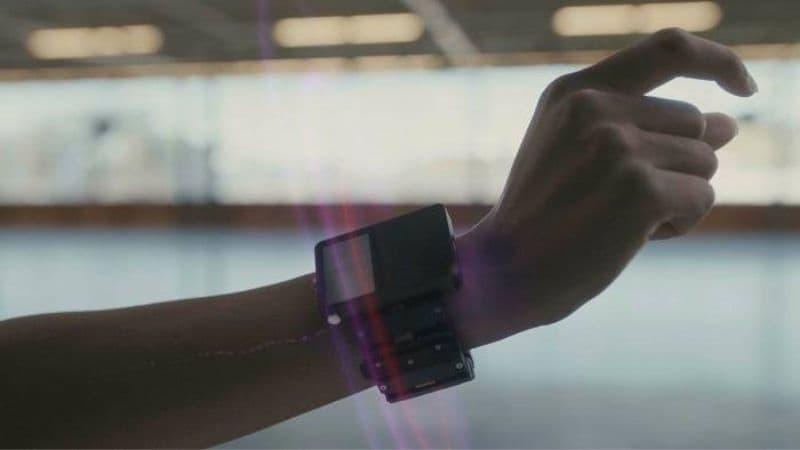ust last week, Facebook revealed a prototype for a wearable device which can be used as a control for augmented reality systems. Facebook's Reality Labs are still developing the device as part of its search to find alternative methods of 'human-computer interaction' (HCI).
The prototype utilises software which Facebook explains is a "wrist-based input combined with usable but limited contextualised AI". It is a type of haptic technology where sensors measure electrical motor nerve signals that run up the wrist to the fingers. The prototype appears to look like a very bulky watch where it is presumably housing several of these sensors.

The development of the hardware was focused around an interface for augmented reality which does not require touchscreens or physical keyboards, enabling users to better interact with and control the virtual layers created by a device.
In a recent blog post, Facebook wrote:
"The future of HCI demands an exceptionally easy-to-use, reliable, and private interface that lets us remain completely present in the real world at all times… That interface will require many innovations in order to become the primary way we interact with the digital world."

The Reality Labs team is continuing to develop two critical elements of the software. The first is 'contextually-aware AI', used to translate the instructions and actions of the user based on the situation or environment they are in. The second is technology that allows for effortless communication with the system, or what Facebook calls 'ultra-low-friction input'.
Facebook's Chief Technology Officer, Mike Schroepfer, stated that the prototype has "amazing potential" to make devices more accessible. Schroepfer also shared two videos of the technology in action, with one highlighting both its contextual AI with a virtual keyboard and its 'low-friction input'.
Facebook is not the first company to develop haptic augmented reality devices, the Hasso Plattner Institut in Berlin has conducted research into haptic technology for virtual and augmented reality. The institute developed a prototype in 2018 for Microsoft's HoloLens that integrated haptic force feedback by using electrical muscle stimulation.














